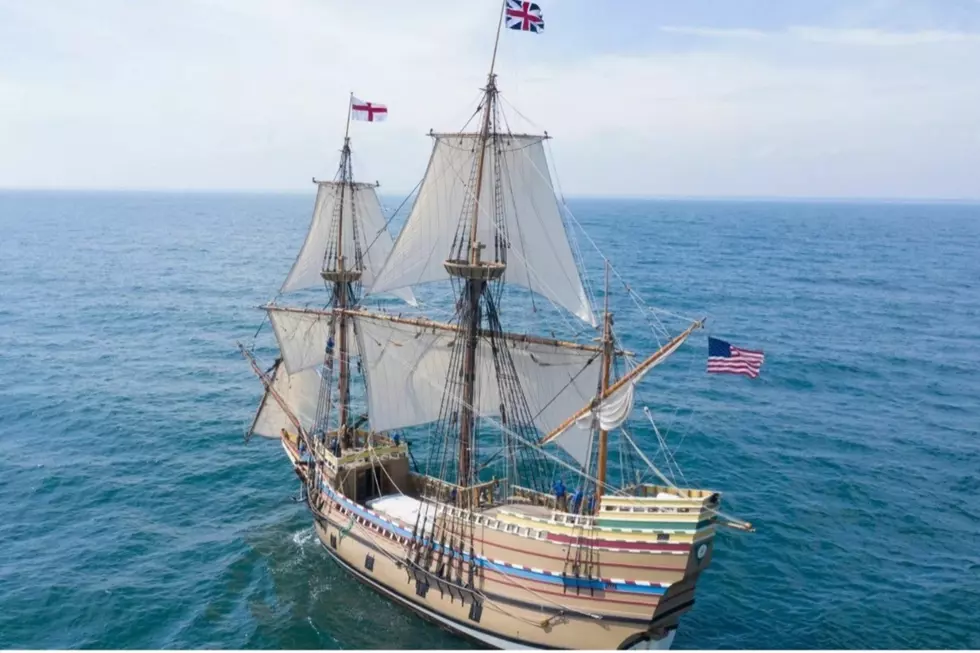
Draft Suggests Opening for Commercial Fishing in Monument Area
STATE HOUSE, BOSTON — The U.S. Interior secretary is giving voice to the return of commercial fishing to a year-old marine national monument about 130 miles southeast of Cape Cod, a move that addresses concerns raised by the industry but was blasted Monday by environmental groups.
After completing a review of 27 national monuments, Interior Secretary Ryan Zinke outlined his recommendations in a draft memo obtained by the Washington Post.
Zinke said the September 2016 by President Barack Obama proclamation establishing the Northeast Canyons and Seamounts Marine National Monument should be amended "to allow commercial fishing and ensure the practice is managed under the Magnuson-Stevens Fishery Conservation and Management Act," the primary law governing fisheries management in federal waters.
The designation of the Atlantic Ocean's first deep-sea marine national monument, made by Obama under the federal Antiquities Act, allowed recreational fishing to continue in the 4,913-square mile area but ordered most commercial fishing operations to transition out of the area. Red crab and lobster fisheries were given seven years to cease operations.
While environmental advocates applauded Obama's decision, the commercial fishing industry, port communities and some elected officials, including Gov. Charlie Baker, pushed back against its strict limits on fishing.
After President Trump announced his administration would revisit certain declarations made under the Antiquities Act, Baker in June wrote a letter to Zinke. In the letter, Baker voiced concerns with the monument designation process and its effects on commercial fishing, and requested that the review include "an evaluation and related finding related to the decision and effects of prohibiting commercial fishing, specifically lobster and red crab fisheries."
The Conservation Law Foundation on Monday was among the groups criticizing Zinke's decision, decrying what it described as a call for removal of "critical protections" for the marine monument.
"The president simply does not have the authority to modify these land and ocean treasures," Peter Shelley, the conservation's senior counsel, said in a statement. "More than 120 legal scholars agree that the purpose of the Antiquities Act is clear: to protect areas of scientific, cultural, or historic value – not to decimate them. Our marine monument – the only one in the Atlantic – protects rare and fragile ocean life and serves as an important deep-sea laboratory that will propel forward our nation's commitment to scientific understanding and innovation. We intend to continue to fight for full, comprehensive protection of the Northeast Canyons and Seamounts monument on behalf of all New Englanders who rely on a healthy ocean."
President Trump in April charged Zinke with reviewing certain monuments designated under the Antiquities Act. Trump wrote in an executive order that the designation of natural monuments without proper public outreach or coordination with stakeholders may "create barriers to achieving energy independence, restrict public access to and use of Federal lands, burden State, tribal, and local governments, and otherwise curtail economic growth."
Zinke filed his report with Trump last month, but neither the White House nor the Interior Department disclosed any specifics of what Zinke recommended.
The Washington Post, citing a draft memorandum, reported Monday that Zinke called for changes at 10 monuments, including the lifting of activity restrictions and reducing the boundaries of the Bears Ears and Grand Staircase-Escalante monuments in Utah, Gold Butte in Nevada, and Cascade-Siskiyou in Oregon.
In his recommendations on the Northeast Canyons and Seamounts monument, Zinke noted comments by the New England Fishery Management Council that management of the area should remain under the Magnuson-Stevens Act and that the monument designation "disrupts the Council's ability to manage species to balance protection with commercial fishing."
Baker also cited the council's work in a 2015 letter he wrote to Obama, a copy of which he forwarded to Zinke in June. The letter said the council was working to protect to the New England Canyons and was part of a regional group working on an ocean management plan. Designating a monument apart from that process could "jeopardize already strained relationships with important stakeholders, including commercial and recreational fishermen," Baker said.
When Obama last year announced the creation of the marine monument, a Baker spokesman said the administration was "deeply disappointed by the federal government's unilateral decision to undermine the Commonwealth's commercial and recreational fishermen."
Rip Cunningham, a recreational fisherman and former chair of the New England Fishery Management Council, said in a statement Monday that the monument's commercial fishing restrictions are valid because of the industry's potential impact on "the fragile and vulnerable resources within the area." Removing the restrictions would be "deeply concerning for the future health of these resources," he said.
John McMurray, captain of the New York-based charter boat One More Cast, also praised the fishing restrictions in a statement distributed by The Pew Charitable Trusts.
"It's intuitive anglers would support keeping intact the Northeast Marine Monument, where recreational fishing is allowed," he said. "We depend on healthy and abundant marine resources. Without that, business like mine can't be successful. There are some uniquely biodiverse places where commercial-scale extraction should justifiably be off limits. This is one of them. A lot of us hope that the President decides to keep the monument in place."
--Katie Lannan, State House News Service
More From WBSM-AM/AM 1420









